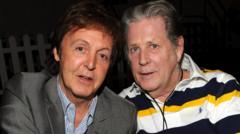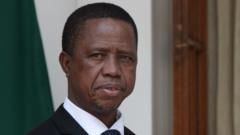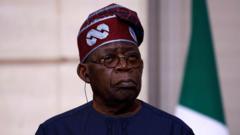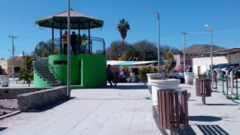Pope Francis passed away at the age of 88, leaving behind a complex legacy marked by significant strides toward inclusivity within the Catholic Church and pressing moral issues such as climate change and social justice. The upcoming selection of a successor poses critical questions about the future direction of the Church.
The Legacy of Pope Francis: A Vision for an Inclusive Church

The Legacy of Pope Francis: A Vision for an Inclusive Church
The world mourns the loss of Pope Francis, whose 12-year pontificate championed inclusivity, compassion for the marginalized, and urgent action on global issues.
Pope Francis, the 88-year-old leader of the Roman Catholic Church, died on April 21, 2025, in Vatican City, just a day after addressing thousands of faithful in St. Peter's Square for Easter. Cardinal Kevin Farrell confirmed the news, stating that Francis returned to the "house of the Father" at 7:35 a.m. on Monday. Massive crowds gathered in mourning outside St. Peter's Basilica, where many expressed their shock and sadness over the sudden loss of a pope who had worked tirelessly to foster a more inclusive church.
Tributes from global leaders poured in, celebrating Francis's dedication to the poor and his commitment to addressing pressing issues such as climate change and humanitarian crises. His passing has created a significant vacuum in the leadership of more than a billion Catholics worldwide, leading to a crucial decision for the cardinals: whether to build upon Francis’s welcoming ethos or revert to the more conservative stances of past leaders.
Francis's papacy, which began in 2013, was characterized by efforts to reform the church's handling of sexual abuse scandals and its approach toward marginalized groups. He maintained a focus on inclusivity, promoting dialogue over dogmatism and often addressing controversial topics such as immigration and social justice. His unwavering drive to reach out to the peripheries of society established a legacy that will guide future endeavors of the Church.
Despite facing significant health challenges in recent years, including a week-long hospitalization for pneumonia, Francis remained active, urging compassion in his final Easter blessing as he addressed anti-immigrant sentiment and the war in Gaza. His last public appearance began with a blessing from a balcony, where he encouraged attendees to revive their commitment to social justice.
As the Church prepares for the transition of leadership, discussions will be ongoing about maintaining the progressive trajectory established by Francis or whether to revert to a more traditional lineage. His legacy, marked by a blend of activist passion and spiritual commitment, poses critical questions about the future direction and ethos of the Catholic Church, making the upcoming conclave a pivotal moment in its history.
The funeral for Pope Francis will follow longstanding Vatican traditions, allowing the faithful to pay their respects and witness the ceremonial processes that typically accompany a papal death. As condolences flow from every corner of the globe, the significance of his efforts towards a more compassionate and inclusive church will continue to resonate long after his passing.






















